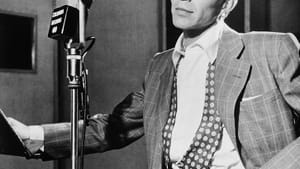Stay in the Loop
BSR publishes on a weekly schedule, with an email newsletter every Wednesday and Thursday morning. There’s no paywall, and subscribing is always free.
A man of contradictions
'Sinatra: All or Nothing at All' on HBO

When Norman Lear was serving with the U.S. Army in Italy during World War II, he and all his buddies hated Frank Sinatra. Their wives and girlfriends back home were romantically obsessed with Frankie, whom they considered a draft-dodger (he was excused from going into the armed forces due to a punctured eardrum). Lear’s complaint is one of many unflattering comments about Sinatra in the HBO documentary about his life and music.
Half of the population, it seemed, loathed him while the other half was hysterically in thrall.
This reflected Sinatra’s position in American culture at that time. This young Sinatra was more interesting than the hip sophisticate of his later years. And he was unique.
There had been star musical performers before him — Al Jolson, Bing Crosby, Benny Goodman — but none of them were sex objects for teen girls. As the object of this delirium, Sinatra was a forerunner of Elvis Presley, the Beatles, and other pop stars.
Alex Gibney, a respected documentarian who recently produced a scathing exposé of Scientology, uses excerpts from TV shows and movies, newspaper clippings, audio interviews, and the singer’s own words as recorded by his family and on the air. Gibney frames all this within Sinatra’s “farewell” concert of 1971, for which the singer selected 11 songs to tell the story of his career. Gibney uses these songs as guideposts to examining Sinatra’s life.
No hagiography
The documentary surprises us with its lengthy inclusion of negative incidents in Sinatra’s life, such as his arrest for rape, avoidance of military service, connections with mobsters, and infidelity and sexism (referring to women as “broads” and “dolls”). It also reveals a phase when he was described by wife Ava Gardner and songwriter Jimmy Van Heusen as a drunk. Friends and family members offer explanations, but Gibney’s decision to dredge up these incidents is impressive; he avoids sugar-coated hagiography.
Most impressive is Gibney’s concentration on the early part of Sinatra’s life. Younger viewers know his later songs — “Come Fly with Me” and “My Way.” But if you’re a female who grew up in an earlier era, you remember Frankie for romantic ballads, in which his light, high voice suggested innocence, as did his skinny, big-eared physique. Many women wanted to mother him, others to sleep with him, and the passions of those early fans are revealed as we see and hear from bobby-soxers who screamed and swooned for Sinatra.
Up and down, left and right
A superstar in 1942, he was thought to be washed up by 1952. He made a comeback by tackling dramatic roles in film, starting with 1953’s From Here to Eternity, for which he won a Best Supporting Actor Oscar. The newly self-confident Sinatra bragged, “I get knocked on my ass, but I’m getting up.” His understanding of suffering and his resilience made him a hero. Earlier, males had resented him; now men said they’d like to be him.
Around this time, Sinatra took to calling himself a saloon singer, but this persona was a clearly later invention. The program illuminates his background as a radio performer who landed jobs as the boy singer with Harry James’s band and then Tommy Dorsey’s, which led to a movie career. I’m disappointed that Gibney failed to point this out and weave it into the narrative, since contradictions are a prominent part of the Sinatra story.
The most perplexing incongruity is in the area of race relations. Sinatra was a powerful denouncer of racial bigotry early in his career, befriending Sammy Davis Jr. But later, in his Las Vegas days, Sinatra made Davis the butt of racist jokes. Sinatra also was a prominent campaigner for John F. Kennedy, but resented the family’s snubbing him because of his mob ties, so he moved to the right politically. He supported Reagan’s reelection as California governor in 1970 and Nixon’s as president in 1972, going on to donate $4 million to Reagan’s presidential campaign in 1980. All of this makes Sinatra a fascinating subject.
What, When, Where
Sinatra: All or Nothing at All. Alex Gibney directed. HBO Documentary Films. On HBO and HBO On Demand.
Sign up for our newsletter
All of the week's new articles, all in one place. Sign up for the free weekly BSR newsletters, and don't miss a conversation.

 Steve Cohen
Steve Cohen